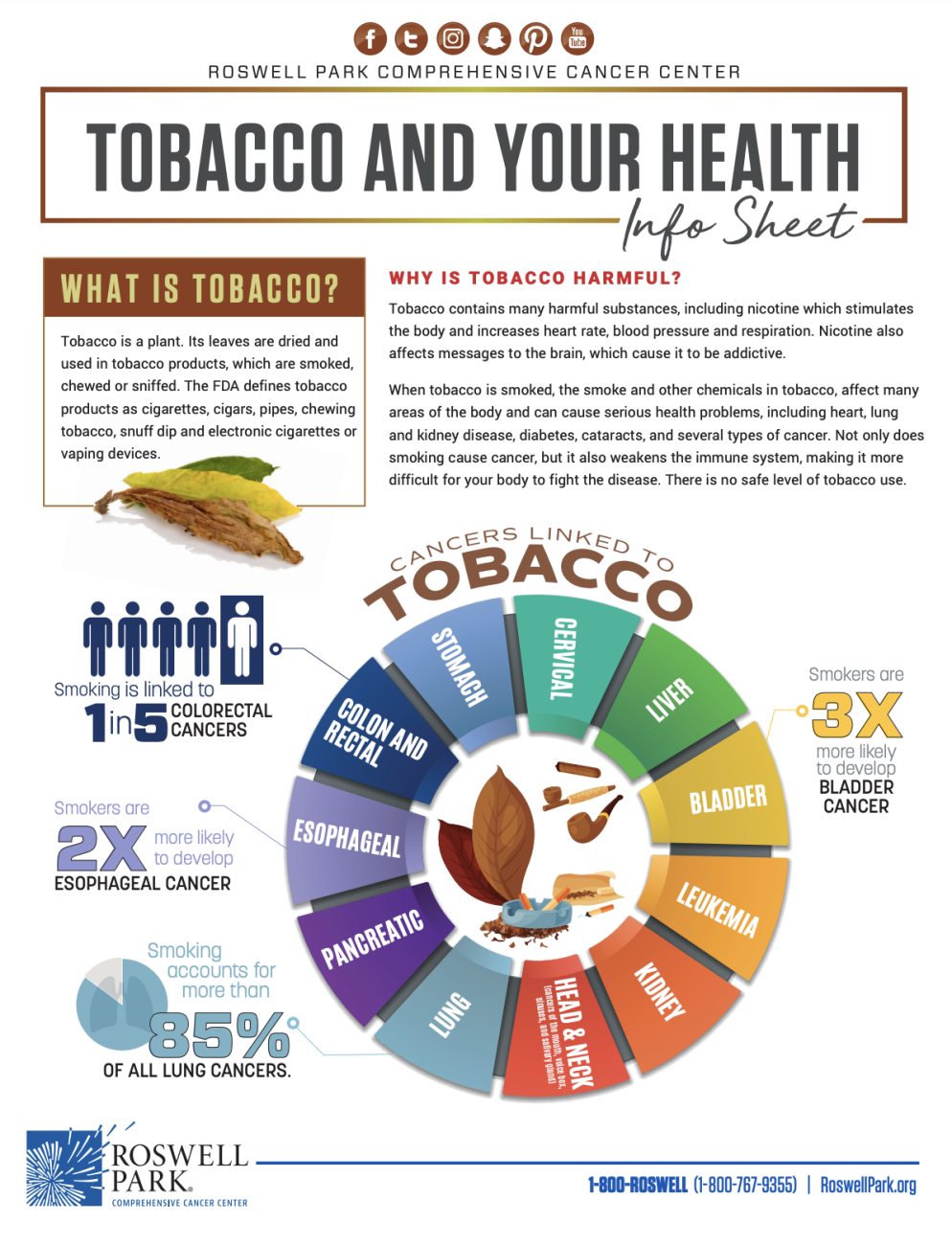Many risk factors for bladder cancer – such as your race, gender, age and family history – are not within your control.
However, you can reduce your risk by taking the following steps:
Quit smoking
Smokers are four times more likely to develop bladder cancer than are non-smokers. Smoking is a difficult addictive habit, but you can quit, and we can help. Call the New York State Smokers’ Quitline (1-866-NY-QUITS or 1-866-697-8487). This free and confidential service, housed at Roswell Park, provides effective smoking cessation services to New Yorkers who want to stop smoking.
Since the Quitline began in 2000, it has received over a million calls and helped thousands of New Yorkers overcome their addiction to nicotine.
Avoid exposure to cancer-causing substances
Avoid exposure to cancer-causing substances, such as aniline dyes and chemicals. Working in some occupations involve exposure to cancer-causing chemicals and can increase your risk for bladder cancer. These occupations include autoworker, truck driver, barber, metalworker, dry cleaner, painter, paper manufacturer, rope and twine manufacturer, dental technician, drill press operator, apparel manufacturer and machinist.
Seek regular health care
While there is no approved screening test for bladder cancer, your primary care physician may conduct urine tests for other health issues or as part of your routine healthcare. These tests can detect microscopic amounts of blood in your urine, an early warning sign of several urinary problems, including bladder cancer. Talk to your primary care physician about whether you should have a urinalysis.
Experts in urology care
If you are experiencing symptoms consistent with urinary issues, we urge you to complete our urologic cancer risk assessment form.
